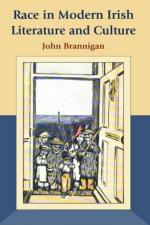|
This section contains 7,878 words (approx. 27 pages at 300 words per page) |

|
SOURCE: “The Bicycle and Descartes: Epistemology in the Fiction of Beckett and O'Brien,” in Eire-Ireland, Vol. XXVI, No. 1, 1991, pp. 76-94.
In the following essay, Booker discusses epistemology in the works of Samuel Beckett and Flann O'Brien.
A fascinating scene concludes Samuel Beckett's Murphy in which the old, crippled Mr. Kelly—a forerunner of later, more paradigmatic crippled Beckett “heroes” like Malone—flies his kite in the park. Mr. Kelly is a skillful flier, even from his wheelchair, and the kite reaches such heights that it disappears from view, giving its owner an opportunity to engage in some profound epistemological speculations: “Now he could measure the distance from the unseen to the seen, now he was in a position to determine the point at which seen and unseen met.”1 This is a supreme Beckettian moment, both in its acknowledgement that there is an “unseen” to which human scientific and...
|
This section contains 7,878 words (approx. 27 pages at 300 words per page) |

|


